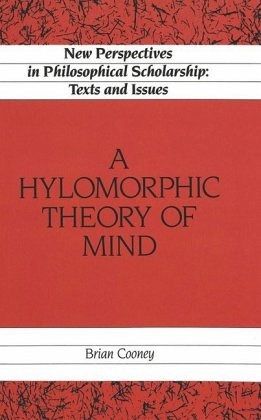Nicht lieferbar

A Hylomorphic Theory of Mind
Versandkostenfrei!
Nicht lieferbar
This book presents a contemporary application of Aristotle's metaphysical concepts to the domains of biology and psychobiology. Professor Cooney reconstructs the form/matter or hylomorphic analysis of organisms and mental functions by linking Aristotle's concept of form to that of information in biological control systems. The resulting hylomorphic theory challenges the orthodoxy of contemporary philosophy by offering an alternative to both materialism and dualism. Professor Cooney makes his book accessible to a wide audience by providing clear digests of the scientific information and philoso...
This book presents a contemporary application of Aristotle's metaphysical concepts to the domains of biology and psychobiology. Professor Cooney reconstructs the form/matter or hylomorphic analysis of organisms and mental functions by linking Aristotle's concept of form to that of information in biological control systems. The resulting hylomorphic theory challenges the orthodoxy of contemporary philosophy by offering an alternative to both materialism and dualism. Professor Cooney makes his book accessible to a wide audience by providing clear digests of the scientific information and philosophical issues relevant to his arguments.



